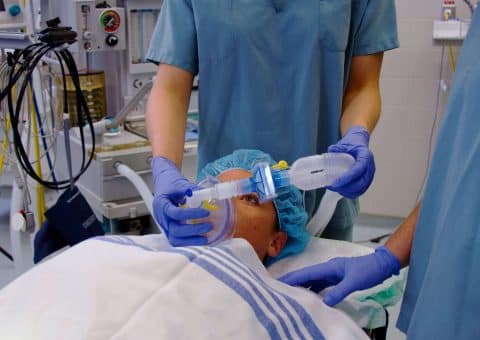The data was gleaned from a comprehensive, seven-year study published in the medical journal Anesthesiology and posted online by the U.S. National Library of Medicine.(1)
Using hospital statistics, the study reviewed data from 1999 to 2005 and determined that there were 2,211 anesthesia-related deaths in the U.S. over that span with “excess mortality risk in the elderly and men.”
Overall, 46.6 percent of the deaths were attributed to an overdose of anesthetics, followed by 42.5 percent who were killed by the adverse effects of anesthetics used in therapeutic use, the researchers said.”
The study focused on deaths in the United States and used information from the “National Vital Statistics System, maintained by the National Center for Health Statistics.” (1)
The study determined that anesthesia-related death rates dropped by 97% since the late 1940s to early 1950s.
Study Reports Spike in Deaths
However, according to Time, a 2011 story in the German Medical Association’s science journal states that after decades of decline, the worldwide death rate during full anesthesia had increased to approximately seven patients in every million.(2)
That’s up from four in every million at the end of the 1980s.
The author of the study said the uptick was the result of an increase in the number of older patients — not reduced quality of care.
The American Society of Anesthesiologists says “anesthesia is safer than ever.”(3) Anesthesia-related death rates have dropped from two deaths per 10,000 procedures to one death per 200,000 to 300,000 procedures, according to the organization.
Have you or a loved one suffered complications related to anesthesia? Contact us now for a free consultation.
Get a Free Case ReviewComplications are Rare
Mistakes made in the application of anesthetics can lead to serious complications, life-long medical issues and a number of associated problems.
The risks associated with receiving anesthesia vary depending on the patient’s age, physiology, and the type of surgery involved. Although rare, complications may occur, including lung infections, stroke, and heart attack.
Sometimes, the symptoms associated with errors in anesthesia include convulsions, bronchospasms, or an inability to breathe properly. Sometimes, death can be traced to either improper dosages — too much or too little — or medication type.

Failure to properly monitor the patient or to recognize complications, mistakes in the operation of oxygen equipment, and failing to give proper instruction to the patient about eating before surgery are among the possible problems.
Complications from anesthesia errors include brain damage, allergic reactions, nausea, breathing issues, stroke, nerve damage, blood clots, heart attack, medium-term mental confusion, pneumonia, and death.
Some patients who are administered general anesthesia are aware of what is happening during surgery but are unable to speak out because of the numbing effects of the medication. That rarely happens, according to the American Association of Nurse Anesthetists.(4)
When it does happen, those patients sometimes experience long-term psychological issues similar to post-traumatic stress disorder, or PTSD, because they are unable to communicate to doctors that they are awake or experiencing pain.
Risks for Children
Young children also face anesthesia risks.
One study found language comprehension and intelligence quotients decreased in young children who received anesthesia for surgeries.
“The present findings suggest that general anesthesia for a surgical procedure in early childhood may be associated with long-term diminution of language abilities and cognition, as well as regional volumetric alterations in brain structure,” the study said. “Although causation remains unresolved, these findings nonetheless warrant additional research into the phenomenon’s mechanism and mitigating strategies.” (5)
